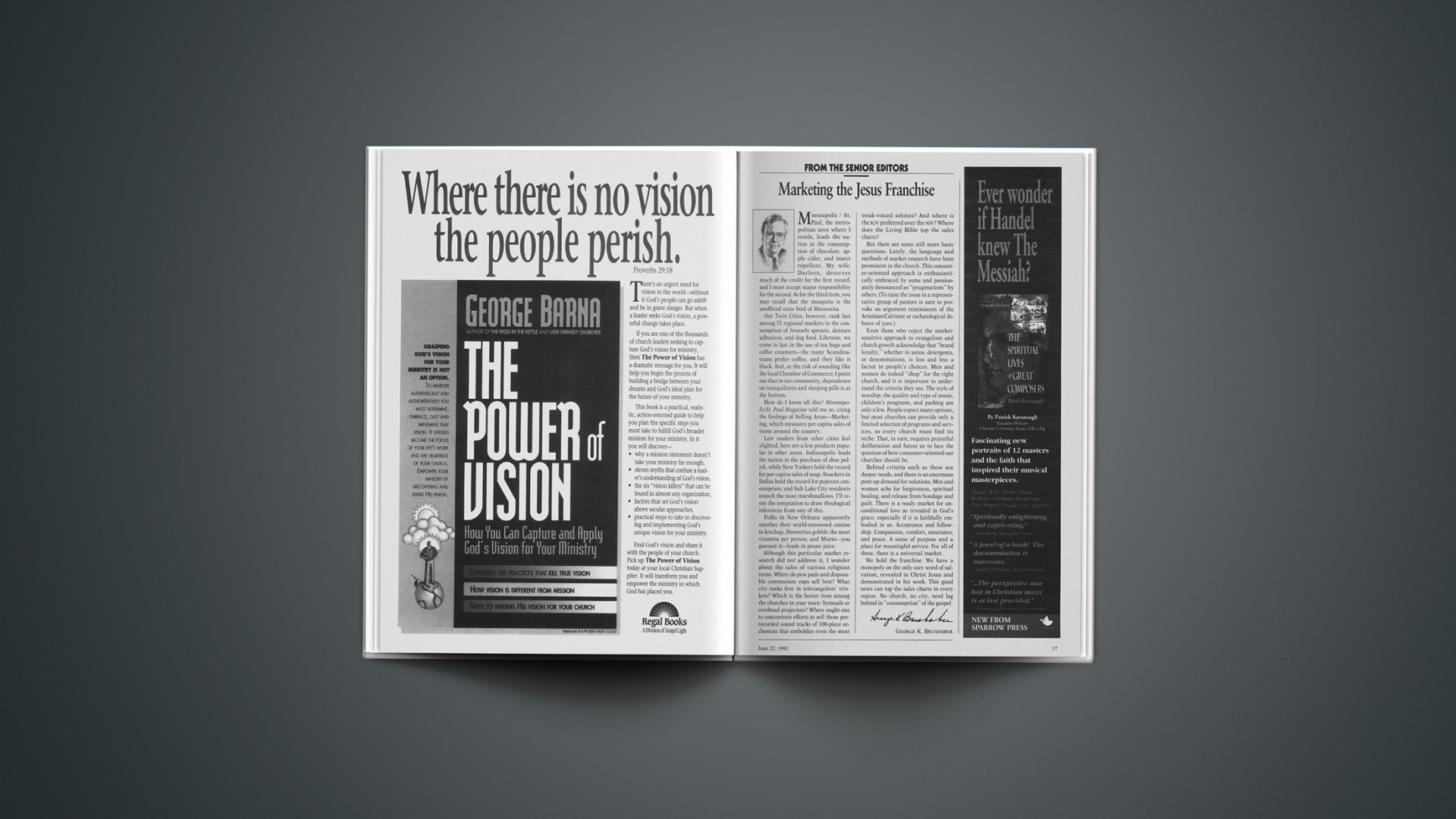Minneapolis / St. Paul, the metropolitan area where I reside, leads the nation in the consumption of chocolate, apple cider, and insect repellent. My wife, Darleen, deserves much of the credit for the first record, and I must accept major responsibility for the second. As for the third item, you may recall that the mosquito is the unofficial state bird of Minnesota.
Our Twin Cities, however, rank last among 51 regional markets in the consumption of brussels sprouts, denture adhesives, and dog food. Likewise, we come in last in the use of tea bags and coffee creamers—the many Scandinavians prefer coffee, and they like it black. And, at the risk of sounding like the local Chamber of Commerce, I point out that in our community, dependence on tranquilizers and sleeping pills is at the bottom.
How do I know all this? Minneapolis/St. Paul Magazine told me so, citing the findings of Selling Areas—Marketing, which measures per capita sales of items around the country.
Lest readers from other cities feel slighted, here are a few products popular in other areas. Indianapolis leads the nation in the purchase of shoe polish, while New Yorkers hold the record for per-capita sales of soap. Snackers in Dallas hold the record for popcorn consumption, and Salt Lake City residents munch the most marshmallows. I’ll resist the temptation to draw theological inferences from any of this.
Folks in New Orleans apparently smother their world-renowned cuisine in ketchup, Denverites gobble the most vitamins per person, and Miami—you guessed it—leads in prune juice.
Although this particular market research did not address it, I wonder about the sales of various religious items. Where do pew pads and disposable communion cups sell best? What city ranks first in televangelists’ trinkets? Which is the hotter item among the churches in your town: hymnals or overhead projectors? Where ought one to concentrate efforts to sell those prerecorded sound tracks of 100-piece orchestras that embolden even the most weak-voiced soloists? And where is the KJV preferred over the NIV? Where does the Living Bible top the sales charts?
But there are some still more basic questions. Lately, the language and methods of market research have been prominent in the church. This consumer-oriented approach is enthusiastically embraced by some and passionately denounced as “pragmatism” by others. (To raise the issue in a representative group of pastors is sure to provoke an argument reminiscent of the Arminian/Calvinist or eschatological debates of yore.)
Even those who reject the market-sensitive approach to evangelism and church growth acknowledge that “brand loyalty,” whether in autos, detergents, or denominations, is less and less a factor in people’s choices. Men and women do indeed “shop” for the right church, and it is important to understand the criteria they use. The style of worship, the quality and type of music, children’s programs, and parking are only a few. People expect many options, but most churches can provide only a limited selection of programs and services, so every church must find its niche. That, in turn, requires prayerful deliberation and forces us to face the question of how consumer-oriented our churches should be.
Behind criteria such as these are deeper needs, and there is an enormous pent-up demand for solutions. Men and women ache for forgiveness, spiritual healing, and release from bondage and guilt. There is a ready market for unconditional love as revealed in God’s grace, especially if it is faithfully embodied in us. Acceptance and fellowship. Compassion, comfort, assurance, and peace. A sense of purpose and a place for meaningful service. For all of these, there is a universal market.
We hold the franchise. We have a monopoly on the only sure word of salvation, revealed in Christ Jesus and demonstrated in his work. This good news can top the sales charts in every region. No church, no city, need lag behind in “consumption” of the gospel.










